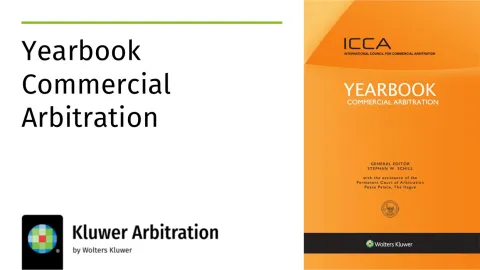Professionalizing Arbitration: A Response to the New York Times Articles on Privatizing Justice
November 4, 2015
The New York Times has just published a three-part series of investigative articles about arbitration practice in the United States, casting it as machine of repeat-players used by large companies to deprive ordinary citizens of access to justice.
It is a pity the writers did not look deeper under the hood of that machine. Had they done so, they would have found that many large companies, my own included, have for years lamented many of the same issues and called for greater efficiency, transparency, and accountability in arbitration. Similarly, in his 2012 ICCA address, Chief Justice Sundaresh Menon (an esteemed international arbitrator) also expressed the urgent need for an international self-regulatory regime to pursue these goals.
In many countries, including the United States, arbitration has grown not because it is the best possible solution, but because it is perceived as a lesser of evils compared with what courts have to offer. In the USA, litigation can be both unpredictable and uncontrollably expensive for parties on both sides. The idiosyncrasies of American civil justice include an elected judiciary (and wide variability of quality) in state courts, juries of lay citizens in civil cases, the threat of disproportionately high punitive damages, class actions (collective redress), high costs of discovery, contingency fee arrangements, and the absence of fee-shifting towards the prevailing party.
This “American exceptionalism” can make access to the courts illusory even for an average citizen. Unsurprisingly, it also creates pressure on businesses to find affordable and reliable alternatives instead of just passing the costs of litigation onto consumers. As a result, domestic US arbitration now booms with many types of claims that are simply not considered arbitrable under the procedural laws of other countries. As the New York Times describes with several troubling examples, employment cases are arbitrable in the USA, as are consumer disputes even where the arbitration agreement is contained in a contract of adhesion.
Hopefully the arbitration community will embrace and address the criticisms rather than argue against change. As an initial step, the arbitration community needs to find a way to cast aside the illusory cloak of confidentiality (“secrecy”, as it is now often called) and publish arbitral awards and information about arbitrators’ past performance.*
But fostering transparency is not enough for arbitration to receive the respect accorded other professions. This would require the additional steps of:
• standards of competency;
• certification and licensing;
• disciplinary codes; and
• independent regulatory or supervisory bodies.
The alternative to meaningful self-regulation will most likely be regulation imposed legislatively. There are already examples of this in the United States. California has enacted a legislative response to perceived failings in arbitration, and the US Congress is considering the Fairness in Arbitration Act. Both of these initiatives take aim at issues that could have been addressed through enforceable ethical standards or rules governing the conduct of arbitrators.
It is up to the arbitration community whether to seize the initiative or to let regulation be imposed by others. In either event, a regulatory regime would not be a radical change; on the contrary, it would establish arbitration as a modern profession, like any other.
Just two centuries ago, medical treatment was delivered in the USA by a variety of people who held themselves out as doctors. A series of abuses led to the more serious-minded in the profession to create and implement educational and competency standards, and licensing, in the middle of the 19th century. Although this is a relatively recent development, no reasonable person today would consider using a doctor who lacks a license attesting to her or his professional competency.
As discussed previously here, mediation, as another “alternative” to court litigation, may offer a useful foundation on which to build an arbitration regulatory scheme. The International Mediation Institute, or IMI (www.IMImediation.org) was launched just seven years ago. It provides no services of any type and is instead dependent for its existence on donations (including from my company) and mediator registration fees. With its minimal budget, IMI has introduced certification requirements, standards, and disciplinary codes of conduct that are now in use around the world. IMI also publishes feedback from parties who have used IMI certified mediators, both positive and negative.
Arbitration has no equivalent of IMI, at least not yet.
This model could be easily adapted to suit the differences in arbitration practice, both domestic and international.
The fix for the US litigation system, by contrast, presents a broader and far more difficult challenge.
* For example, Prof. Catherine Rogers has published here on Kluwer a proposal - already in implementation - to bring about more transparency through the Arbitrator Intelligence project.
You may also like











Anil Xavier
I entirely agree with Mike. Rather than defending blindly, the arbitration community should take this an apportunity to improve the arbitration system. The Times article infact did point out some grave anomalies which need immediate focus. An arbitration certifying institute similar to IMI could create an impact.
Duarte Henriques
Thanks for sharing this. I believe you are right: the arbitration community should lead the “self regulatory” process. However, I really don´t know if the arbitration community is ready or, better, if is willing to go for it — picking your “medical” example of the US two centuries ago, I wonder what the reaction of the community would be if they had the communication technologies available today … It had to be imposed by law, that's what History tells us. I am starting to believe that regulation will only arrive with broad acceptance and enforcement if done through international bodies like UN, that nearly six decades ago boosted an international instrument governing arbitration throughout more than 150 countries now … Perhaps a New York Convention for International Standards in Arbitration?
A Layman
I am not sure whether 'professionalisation' is the solution rather than the problem. For centuries, it was the custom for arbitrators to be drawn from many walks of life but particularly from the Law. They did what was asked of them and then returned to the day job. Some large companies gave arbitrators leave to spend one or two days gratis. The huge fees and long cases were the exceptions; now they're the rule.
Napoleao CASADO FILHO
Don't you think CIArb already does something similar to a self regulation?